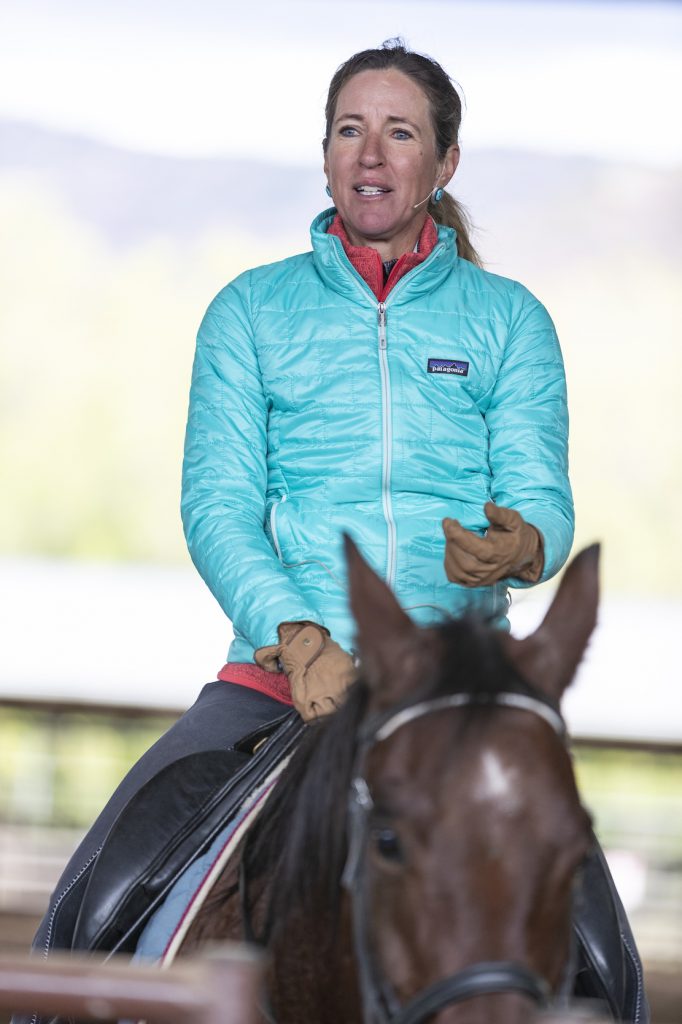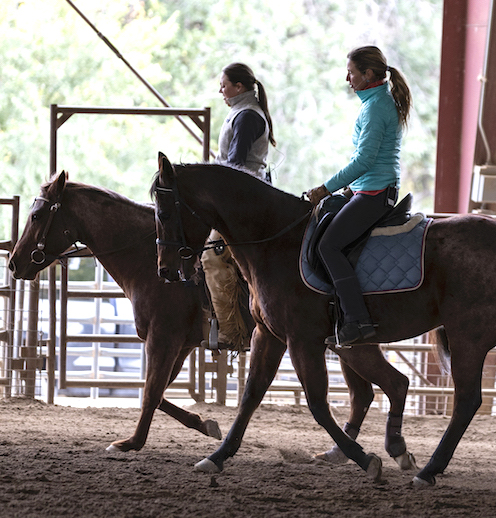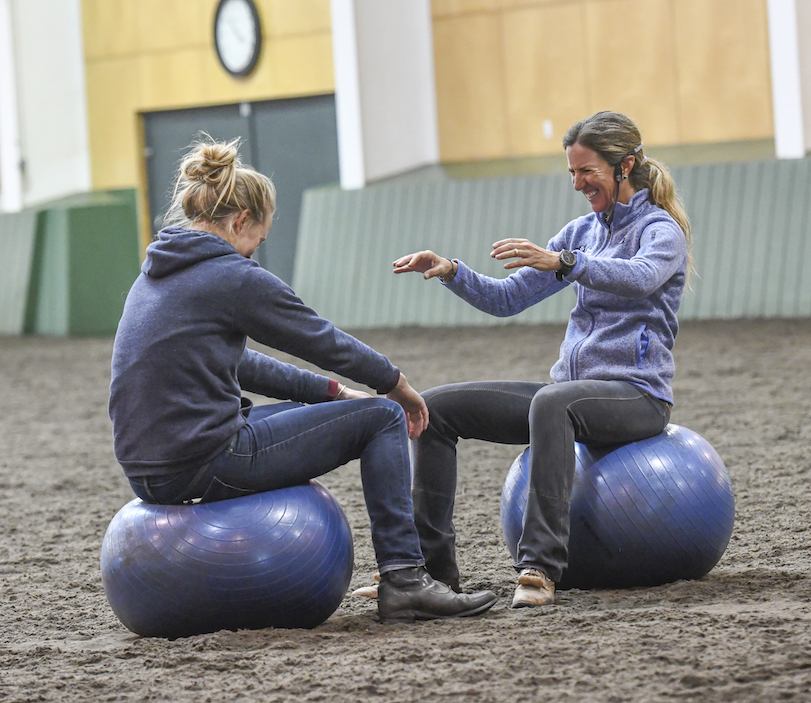
Katrin Silva
Editor’s Note: 2018 & 2019 Best Horse Practices Summit presenter Katrin Silva grew up riding dressage in Germany before moving to the United States at age 19 to learn to ride Western. She’s been riding both disciplines for the last twenty years and is a regular columnist for Cayuse Communications, with a new book “Dressage for the Rest of Us.”
She lives in New Mexico where she works with dressage and Western clients. Visit her blog here.
Katrin Silva writes:
Horse enthusiasts use language in a way that diverges from the mainstream standard. Words and phrases sound straightforward, but, on closer reflection, they mean something much more complex. The simple phrases, “On the bit” or “half halt” come to mind.
“Horsewoman” is another example. What does it mean to be a horsewoman or a horseman? How can you tell who is or isn’t one? Why does it matter? [For purposes of this essay, I’ll stick to ‘horsewoman’ but, of course, my comments apply to both men and women.]
You can’t spot horsewomen by looking at their clothes or listening to their accents. Some wear cowboy hats. Some wear baseball caps. Some wear helmets. I’ve met horsewomen all around the world and appreciate that it means much more than “a very good rider.”
At its essence, I believe “horsewoman” means someone who has allowed horses to be her teachers, not just her riding teachers, but her teachers in all areas of life. It means horses have shaped who she is. They are her mentors, her Zen masters, and her role models.

Amy Skinner and Katrin Silva at the BHPS
Being around horses every day for many years can change our outlook and our character for the better. Horses show us how to face challenges and solve problems. A horsewoman may indeed be a successful competitor, but never at the expense of the horse’s physical and mental well-being. A horsewoman will do right by every horse she owns, works with, and cares for. She is someone who listens with full attention. She has learned to be patient, to slow down and communicate in calm, clear tones. She is humble, sensitive, down to earth, and soft-spoken. She who treats others with kindness and respect. She has a good work ethic and a well-developed sense of humor. To be a horsewoman means to live and act like the kind of person horses need, not just whenever we’re around horses, but all the time.
- It’s a red flag for me when I hear a clinician lecture about the importance of being kind to horses and then use demeaning language or a raised voice, or both, when teaching riders.
- It’s a red flag when I hear trainers talk about being fair to the horse at all times, then watch that person treat her barn workers badly.
- An instructor with Olympic credentials who ridicules his students is not a true horseman (or a good teacher).

Katrin instructs a rider at the BHPS
Core values of good horsemanship cluster around calmness, consistency, and fairness. These values are an inextricable part of who we are, not something we try on and discard whenever it’s convenient. We can’t use one set of core values for work and another for our personal lives. Nor can we have one set for horses and another for people.
Why do some riders evolve into horsewomen while others do not? It’s hard to say. From anecdotal evidence, I do know that riders who are responsible for the horse’s daily welfare – i.e. riders who groom, feed, and muck stalls – are more likely to also become horsewomen. I know that too much emphasis on competition and training results can keep riders from morphing into horsewomen, at least temporarily.
And lastly, I know that one’s mentors play a role. As a young professional, I worked for a successful but very abusive trainer and learned to do horrible things to horses. I could have become the same kind of trainer. I walked away from this disturbing experience and found another mentor who calmly told me, “there is another way.” I am forever feel grateful to her.
I still hope to earn gold medals, but earning the title “horsewoman” has become a much more important goal.
Great essay, Katrin! I hope I can be remembered as a horsewoman too.
Well said. Again.
Katrin is a very inspiring woman and one that many of us could learn from. I read this article with a coffee in hand and I came away with an open mind. I just love this type of reading.
Thank you very much for this. I run a company and we are involved in medical research. I will share this with my staff.
Simply Beautiful 💐🐴💞 Thank you for writing this 💕